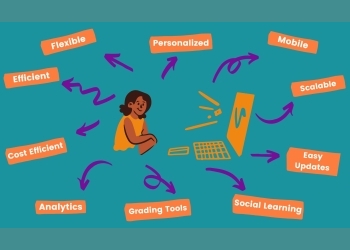
Artificial Intelligence (AI) is revolutionizing how businesses operate and engage with customers. Its capabilities extend far beyond automating routine tasks, offering profound opportunities to enhance sales strategies and improve overall business performance. In this article, we explore practical ways to leverage AI to boost your business sales and stay ahead in a competitive market.
1. Personalized Customer Experiences
One of the most significant advantages of AI is its ability to analyze vast amounts of data to deliver personalized experiences. By collecting and analyzing customer data, AI can:
Understand Customer Preferences: AI tools can analyze browsing habits, purchase history, and interactions to predict what customers want. For instance, Netflix’s recommendation engine uses AI to suggest shows based on viewing history.
Tailor Marketing Campaigns: AI-powered tools like HubSpot and Salesforce allow businesses to craft targeted email campaigns, ensuring that customers receive content relevant to their interests.
Dynamic Pricing: Retail giants like Amazon use AI to adjust prices in real time based on demand, competition, and buying trends, maximizing sales and profitability.
2. AI Chatbots and Virtual Assistants
AI-driven chatbots are transforming customer service and sales processes. These tools:
Provide Instant Responses: Chatbots like Drift and Intercom engage with potential customers 24/7, answering queries and guiding them through the sales funnel.
Upsell and Cross-Sell: Based on customer interactions, AI can suggest additional products or services that complement their purchase, increasing average order value.
Reduce Response Time: Quick, accurate responses lead to improved customer satisfaction and higher conversion rates.
3. Predictive Analytics
Predictive analytics uses AI to forecast future sales trends, helping businesses make data-driven decisions. This includes:
Demand Forecasting: Retailers can predict which products will be in demand during specific seasons, ensuring optimal inventory levels.
Lead Scoring: AI analyzes past interactions to identify high-value leads, enabling sales teams to prioritize efforts effectively.
Customer Churn Analysis: By identifying patterns that indicate potential customer attrition, businesses can take proactive measures to retain clients.
4. Sales Process Automation
AI can streamline repetitive tasks, freeing up sales teams to focus on high-value activities. For example:
Automating Data Entry: Tools like Zoho CRM use AI to log customer interactions automatically, reducing administrative workload.
Appointment Scheduling: AI assistants such as x.ai can schedule meetings, ensuring seamless coordination with prospects and clients.
Follow-Up Reminders: AI-driven platforms can track customer interactions and send automated follow-ups to maintain engagement.
5. Enhanced Customer Insights
AI tools analyze customer data to uncover actionable insights that drive better decision-making. These insights can:
Identify Purchasing Patterns: AI helps businesses understand when and how customers make purchases, enabling tailored sales strategies.
Segment Audiences: Advanced segmentation allows businesses to create highly targeted campaigns, improving ROI.
Monitor Sentiment: AI-powered tools like Brandwatch analyze social media and reviews to gauge customer sentiment, enabling proactive reputation management.
6. Content Optimization
Content plays a crucial role in influencing purchasing decisions. AI can enhance content strategies by:
Analyzing Performance Metrics: Tools like Google Analytics leverage AI to identify high-performing content and suggest improvements.
Generating Content: AI-driven platforms such as Jasper and Copy.ai create blog posts, product descriptions, and ad copies tailored to your audience.
A/B Testing: AI automates the testing process to identify the most effective headlines, visuals, and CTAs.
7. Visual and Voice Search Optimization
With the rise of voice assistants like Alexa and Siri, as well as visual search tools like Google Lens, businesses must adapt to new search behaviors. AI helps by:
Optimizing for Voice Search: AI tools analyze voice search queries to refine keywords and improve search rankings.
Enhancing Visual Search: AI-powered platforms allow customers to search for products using images, creating a seamless shopping experience.
8. Social Media and Advertising
AI is a game-changer for social media marketing and paid advertising. It enables businesses to:
Target Ads More Precisely: Platforms like Facebook and Google Ads use AI to analyze user behavior and deliver highly targeted ads.
Analyze Campaign Performance: AI provides real-time insights into campaign effectiveness, enabling quick adjustments for better results.
Automate Posting: Tools like Buffer and Hootsuite use AI to schedule posts at optimal times for maximum engagement.
9. Improving Sales Training
AI can also play a vital role in enhancing the skills of your sales team by:
Simulating Scenarios: AI-driven platforms like Gong provide real-world scenarios for sales reps to practice and improve their pitches.
Analyzing Conversations: AI tools analyze sales calls to identify areas for improvement, such as tone, pacing, and response strategies.
Tracking Performance: By monitoring key metrics, AI helps identify top performers and areas where additional training is needed.
10. Inventory Management and Supply Chain Optimization
Efficient inventory management is critical to meet customer demand without overstocking. AI helps by:
Predicting Stock Needs: AI-powered systems forecast inventory requirements, reducing the risk of stockouts or overstocking.
Optimizing Supply Chains: Tools like IBM Watson use AI to identify bottlenecks and streamline logistics, ensuring timely deliveries.
Reducing Waste: By analyzing demand patterns, AI minimizes excess inventory, saving costs and resources.
Challenges and Considerations
While AI offers immense potential, businesses must address certain challenges to implement it effectively:
Data Privacy: Ensure compliance with regulations like GDPR to protect customer data.
Integration Costs: Implementing AI tools may require significant investment in technology and training.
Bias in Algorithms: Regularly review AI models to ensure fairness and accuracy.
Employee Adaptation: Provide training to help staff adapt to AI-driven processes.
Future of AI in Sales
The integration of AI in sales is just beginning. Emerging trends include:
Hyper-Personalization: AI will continue to refine its ability to deliver highly personalized experiences.
Advanced Predictive Models: Businesses will leverage even more sophisticated analytics to anticipate market trends.
Seamless Omnichannel Integration: AI will unify online and offline sales channels, providing a consistent customer experience.
AI-Powered AR/VR: Augmented and virtual reality tools will create immersive shopping experiences, further enhancing customer engagement.
Conclusion
AI has become a cornerstone of modern sales strategies, offering tools and insights that were unimaginable a few years ago. By harnessing the power of AI, businesses can deliver personalized experiences, streamline operations, and make data-driven decisions that lead to increased sales and customer satisfaction.
To stay competitive, businesses must embrace AI as a strategic asset and continually explore new ways to integrate it into their sales processes. The future belongs to those who can adapt and innovate, leveraging AI to unlock unprecedented growth opportunities.
Comments (0)
📌 By commenting, you agree to follow these rules. Let’s keep HowweBiz a safe and vibrant place for music lovers!












